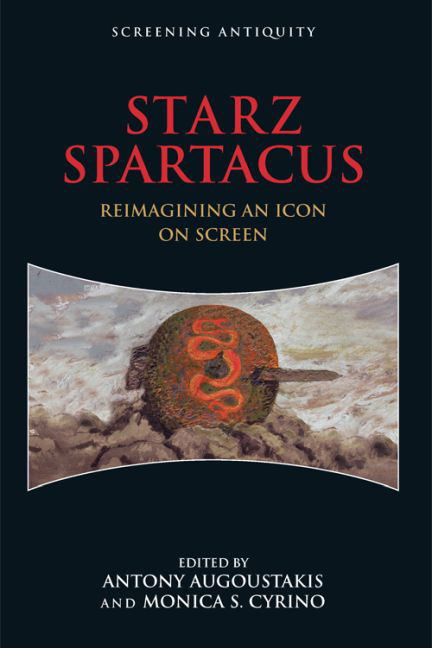Book contents
Introduction: Reimagining a New Spartacus
Published online by Cambridge University Press: 27 April 2017
Summary
The acclaimed and highly successful television series Spartacus, airing on the premium cable network STARZ, attracted a large fan base around the world, starting with its initial season Spartacus: Blood and Sand (2010). The first season was followed by the prequel season Spartacus: Gods of the Arena (2011), the second season Spartacus: Vengeance (2012), and the third and final season Spartacus: War of the Damned (2013), which narrates the last stand of the revolution organized by the Thracian slave, gladiator, and rebel leader Spartacus. This new reception of the centuries-old icon of Spartacus, both reimagined and distinctively idealized for a new millennium, draws from many of its predecessors on the big and small screen, most significantly Stanley Kubrick's 1960 film Spartacus, just as it pays visual and narrative homage to other incarnations and appropriations of ancient warrior and revenge-seeking figures, such as those depicted in Gladiator (2000) or 300 (2007); but STARZ Spartacus also evokes the thematic tropes of the critically lauded HBO series Rome (2005–7), on which it draws extensively for its portrayal of ancient Roman politics, society, women, and sexuality. Viewers of the new Spartacus are invited to appreciate the extreme sexualization of both the male and female characters, the nexus of complicated relationships formed among slaves or between slaves and masters, the surreal and gory representation of warfare, and the bloody, CGI-enhanced violence of the gladiatorial shows in the arena. To be sure, this is an utterly new and reimagined Spartacus, as the hero of the slave revolt is recast for a contemporary twenty-first-century audience. Modern spectators are invited to reimagine the Spartacus legend and connect with antiquity in novel and manifold ways. Moreover, the series vigorously follows the earlier Spartacus reception thread by highlighting the topic of slavery, a perennially favorite theme in the media that has recently surged as a “hot” topic for current onscreen entertainment: the fight for freedom continues to fascinate. The sociopolitical and economic context here is key to understanding the reception of the Spartacus story: in light of the global economic crisis, it can be argued that freedom is indeed acquiring a “post-political” dimension.
- Type
- Chapter
- Information
- STARZ SpartacusReimagining an Icon on Screen, pp. 1 - 14Publisher: Edinburgh University PressPrint publication year: 2017

